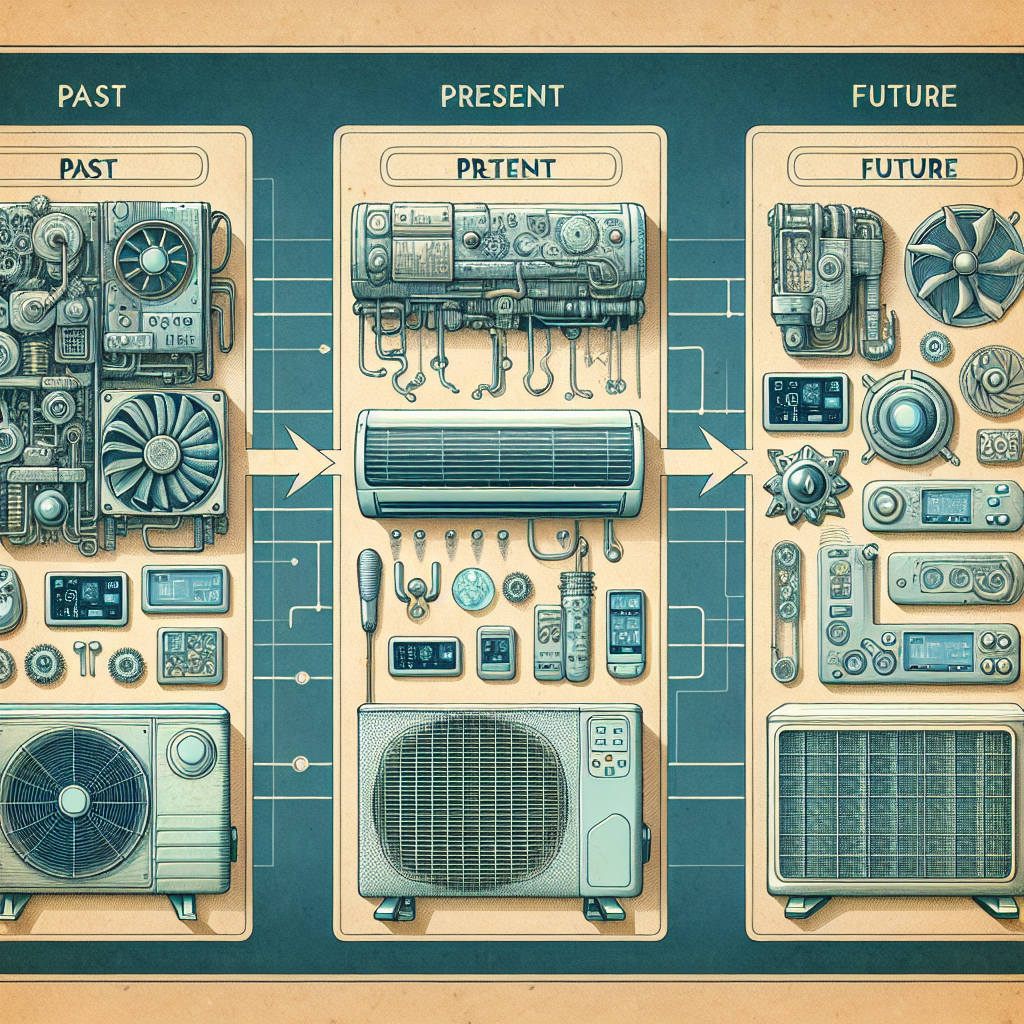Your cart is currently empty!
The Evolution of Air Conditioning Technology: Past, Present, and Future

The Evolution of Air Conditioning Technology: Past, Present, and Future
Air conditioning technology has come a long way since its inception in the early 20th century. What started as a simple way to cool indoor spaces has evolved into a sophisticated system that not only cools but also heats, dehumidifies, and purifies the air. Let’s take a look at the past, present, and future of air conditioning technology.
Past: The Birth of Air Conditioning
The first air conditioning system was invented in 1902 by Willis Carrier, a young engineer who was trying to solve a humidity problem at a printing company in Brooklyn, New York. Carrier’s invention used a combination of cooling coils and fans to remove moisture from the air, creating a more comfortable indoor environment. This breakthrough led to the development of the first commercial air conditioning units in the 1920s, which were primarily used in movie theaters and department stores.
Present: Advanced Cooling Systems
Today, air conditioning technology has advanced significantly, with the introduction of energy-efficient systems that use environmentally-friendly refrigerants. Modern air conditioners are equipped with smart technology, allowing users to control the temperature and humidity levels remotely through their smartphones. In addition, some systems have sensors that detect occupancy and adjust the cooling settings accordingly, saving energy and reducing utility bills.
Furthermore, advancements in air filtration technology have made it possible for air conditioners to remove allergens, bacteria, and other harmful particles from the air, improving indoor air quality and promoting better health. Some systems even have UV lights that kill bacteria and viruses, making them especially beneficial in hospitals and other healthcare facilities.
Future: The Next Generation of Air Conditioning
Looking ahead, the future of air conditioning technology is promising, with a focus on sustainability and energy efficiency. Researchers are exploring new materials and designs that can improve the performance of air conditioners while reducing their environmental impact. For example, scientists are experimenting with using magnetic fields to cool air, which could potentially eliminate the need for traditional refrigerants altogether.
Moreover, the integration of artificial intelligence (AI) into air conditioning systems is expected to revolutionize the industry. AI-powered systems can learn user preferences and adjust the settings accordingly, providing personalized comfort and maximizing energy savings. In addition, AI can help diagnose and troubleshoot issues with the system, improving maintenance and prolonging the lifespan of the unit.
In conclusion, the evolution of air conditioning technology has been remarkable, from its humble beginnings as a simple cooling system to the sophisticated and efficient systems we have today. With advancements in sustainability, energy efficiency, and AI, the future of air conditioning looks bright, promising even greater comfort and convenience for users while reducing the environmental impact of cooling our indoor spaces.

Leave a Reply